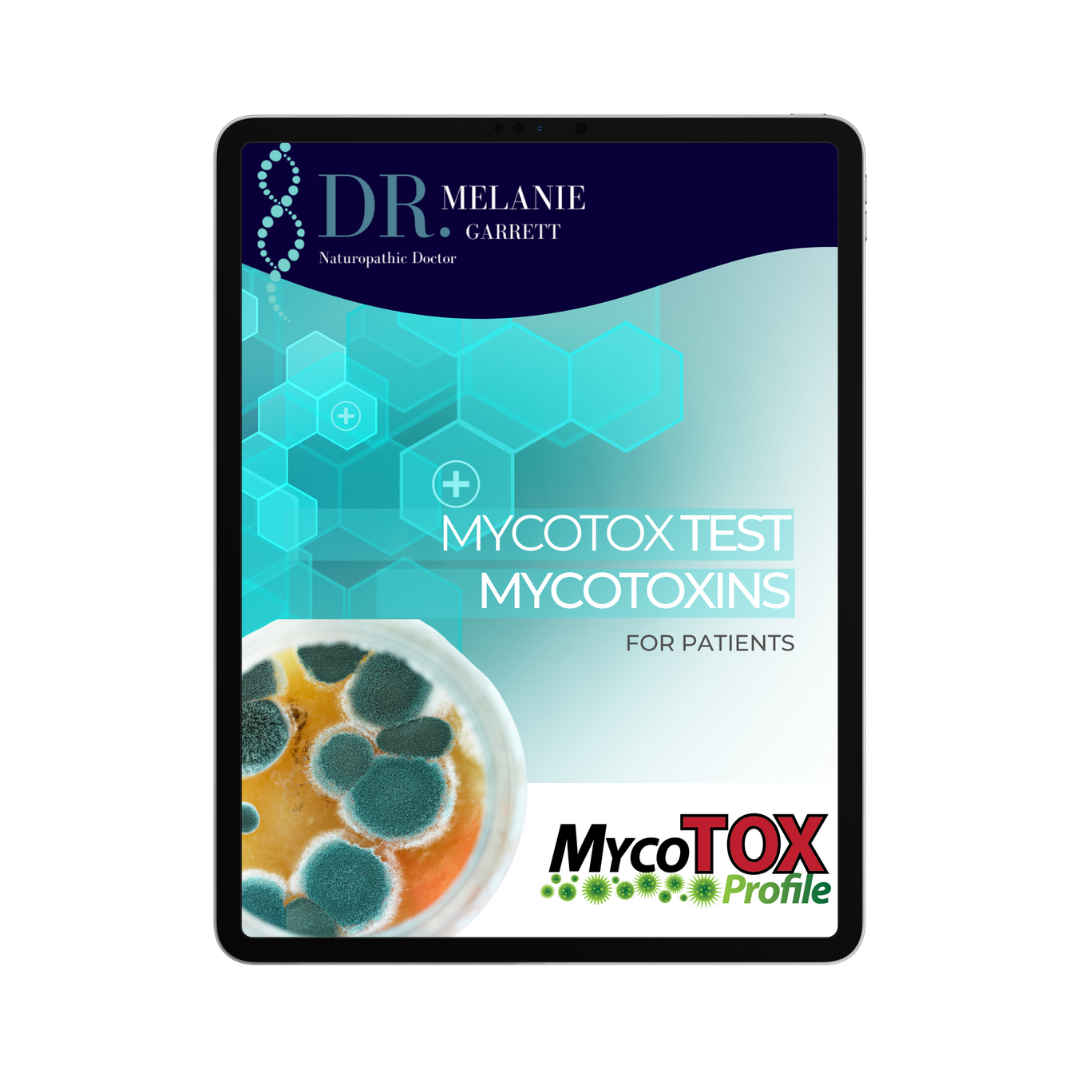What Is Mold Toxicity?
Mold toxicity, also known as mold illness, is a condition that results from exposure to molds that produce toxic substances called mycotoxins. Mycotoxins are naturally occurring substances produced by certain types of fungi, including molds, which can be found in the environment, such as in damp buildings, water-damaged homes, foods and areas with high humidity.
Exposure to mycotoxins can cause a range of symptoms, including fatigue, headaches, joint pain, muscle weakness, difficulty concentrating, memory problems, and gastrointestinal issues such as nausea, vomiting, and diarrhea. Other symptoms may include skin rashes, respiratory problems, and vision disturbances. These symptoms can vary in severity and may mimic those of other conditions, making it difficult to diagnose.
Mold toxicity can affect people differently, with some experiencing severe symptoms while others may not show any symptoms at all. The severity of symptoms may depend on factors such as the amount and duration of exposure to mycotoxins, an individual's overall health, and genetics.
Common Symptoms Of Mold Illness:
Mold illness, also known as mold toxicity, can cause a wide range of symptoms that vary from person to person. Some common symptoms associated with mold illness include:
-
Respiratory problems: Exposure to mold can trigger respiratory symptoms such as coughing, wheezing, shortness of breath, and sinus congestion.
-
Fatigue: Mold toxicity can cause extreme tiredness, weakness, and lack of energy, even after getting enough sleep.
-
Headaches: Mold exposure can cause headaches that range from mild to severe and may be accompanied by other symptoms such as dizziness or light sensitivity.
-
Cognitive difficulties: Exposure to mold can affect cognitive function, leading to memory problems, difficulty concentrating, and confusion.
-
Joint pain: Mold toxicity can cause joint pain and inflammation, which can be debilitating.
-
Gastrointestinal problems: Mold toxicity can lead to nausea, vomiting, diarrhea, and other gastrointestinal symptoms.
-
Skin rashes: Some people may develop skin rashes or other skin irritations after exposure to mold.
-
Vision problems: Mold exposure can cause vision disturbances such as blurred vision, eye irritation, or redness.
It's important to note that symptoms of mold illness can vary widely and may not always be immediately apparent. In some cases, symptoms may not appear until weeks or months after exposure. If you suspect that you have been exposed to mold and are experiencing any of these symptoms, it's important to seek medical attention to determine the underlying cause and develop an appropriate treatment plan.
Signs and symptoms of mold toxicity
- Fatigue
- Weakness
- Aches
- Muscle Cramps
- Unusual Pain
- Ice Pick Pain
- Headache
- Light Sensitivity
- Red Eyes
- Blurred Vision
- Tearing
- Sinus Problems
- Cough
- Shortness Of Breath
- Abdominal Pain
- Diarrhea
- Joint Pain
- Morning Stiffness
- Memory Issues
- Focus/Concentration Issues
- Word Recollection Issues
- Decreased Learning of New Knowledge
- Confusion
- Disorientation
- Skin Sensitivity
- Mood Swings
- Appetite Swings
- Sweats (night sweats)
- Temperature Regulation
- Excessive Thirst
- Increased Urination
- Static Shocks
- Numbness
- Tingling
- Vertigo
- Metallic Taste
- Tremors
Testing & Diagnostics

The Mycotox lab test is a diagnostic test that is used to identify mycotoxins in a person's urine. It is a type of urine test that is used to evaluate exposure to toxic mold and identify the presence of specific mycotoxins in the body.
The test is offered by Great Plains Laboratory, a specialty diagnostic laboratory that focuses on identifying and treating chronic illnesses, including those related to toxic mold exposure. The Mycotox test uses liquid chromatography-mass spectrometry (LC-MS) technology to measure the levels of mycotoxins in a person's urine.
The Mycotox test can help identify specific mycotoxins that may be causing symptoms related to mold illness. The test can detect several common mycotoxins produced by mold, including aflatoxins, ochratoxin A, and trichothecenes. By identifying the specific mycotoxins present in a person's body, healthcare providers can better understand the extent of the exposure and develop a targeted treatment plan.
It is important to note that while the Mycotox test can help identify mycotoxins in the body, it is not a definitive diagnostic test for mold illness. Other diagnostic tools, such as physical examination, medical history, and other laboratory tests, may be needed to confirm a diagnosis of mold illness.
If you are experiencing symptoms of mold illness, it is important to speak with a healthcare provider with experience in diagnosing and treating this condition. They can help determine if the Mycotox test is appropriate for your situation and develop a comprehensive treatment plan to address your symptoms and improve your overall health and well-being.
Exploring Neuropsychiatric Connections
Trichothecene mycotoxins
A study published in the Journal of Occupational and Environmental Medicine in 2015 found that individuals exposed to trichothecene mycotoxins had significantly higher rates of cognitive impairment in humans.
Ochratoxin A
Another study published in the journal Neurotoxicology in 2018 found that exposure to a specific mycotoxin called ochratoxin A was associated with decreased cognitive function and increased anxiety in rats.